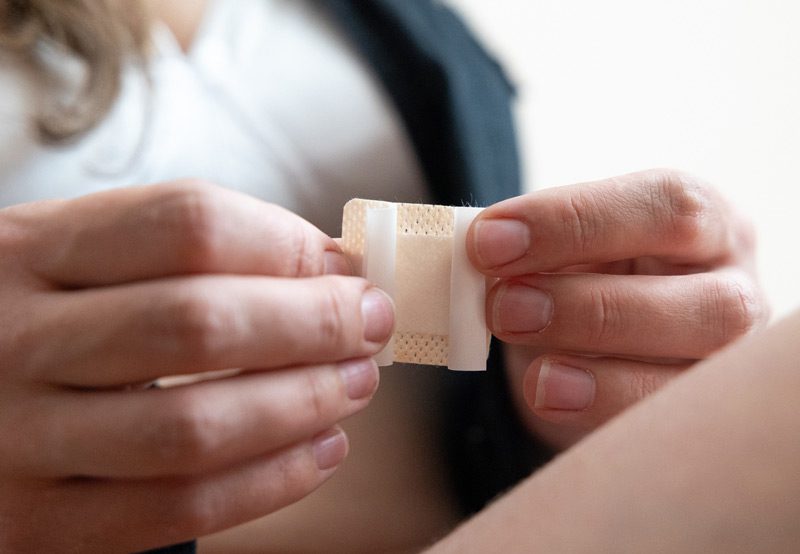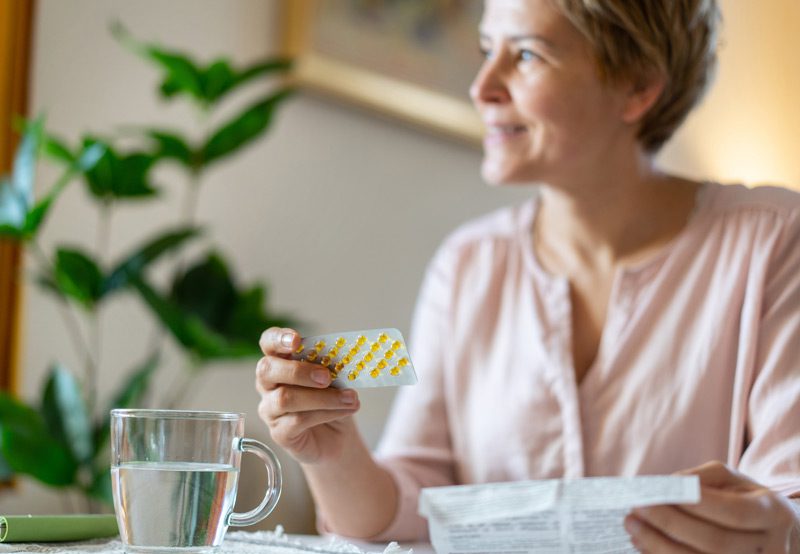

Hormonal therapy, also known as hormone replacement therapy (HRT), is a common and effective treatment for managing a variety of menopause-related symptoms. As women transition through menopause, the body undergoes a significant drop in estrogen and progesterone levels, which can lead to a range of uncomfortable physical and emotional symptoms. Hormonal therapy seeks to replace or balance these hormones, alleviating many of the symptoms associated with menopause and improving overall quality of life.
How Hormonal Therapy Helps with Menopause-Related Conditions
- Hot Flashes and Night Sweats (Vasomotor Symptoms): One of the most common and bothersome symptoms of menopause is hot flashes, often accompanied by night sweats. These vasomotor symptoms can cause sudden feelings of heat, sweating, and discomfort, leading to sleep disruptions and anxiety. Hormonal therapy, particularly estrogen therapy, can help regulate the body’s temperature control and reduce the frequency and severity of hot flashes and night sweats. Estrogen helps stabilize the hypothalamus, the part of the brain that controls body temperature, thereby decreasing these disruptive symptoms.
- Mood Swings, Depression & Anxiety: Many women experience mood swings, depression, and anxiety during menopause due to hormonal fluctuations. Estrogen plays a key role in regulating mood by affecting neurotransmitters like serotonin and dopamine. By restoring estrogen levels through hormonal therapy, women may experience a reduction in mood swings, feelings of depression, and anxiety. This can help improve emotional stability and overall mental well-being during the menopause transition.
Sleep Disturbances (Insomnia): Sleep problems, including difficulty falling asleep and staying asleep, are common during menopause. These disturbances are often linked to hot flashes, night sweats, and hormonal fluctuations. Hormonal therapy can help improve sleep quality by reducing hot flashes and stabilizing hormone levels. By managing vasomotor symptoms, HT can enable women to enjoy more restful, uninterrupted sleep.

- Decreased Libido: A decrease in sexual desire is another frequent complaint during menopause, often caused by a combination of hormonal changes and physical discomfort, such as vaginal dryness. Estrogen therapy can help restore libido by improving vaginal health and enhancing blood flow to the pelvic area. It may also have a positive effect on the body’s natural responses to sexual stimuli, making intimacy more enjoyable and reducing discomfort during sexual activity.
- Genitourinary Syndrome of Menopause (GSM): Hormonal therapy, especially topical estrogen, can help address symptoms of GSM, including vaginal dryness, burning, and discomfort during intercourse. Estrogen helps restore the moisture and elasticity of vaginal tissues, improving vaginal health and reducing symptoms of atrophy. Additionally, estrogen can strengthen the pelvic muscles, potentially alleviating urinary incontinence, which is another common concern of women experiencing GSM.
- Vaginal Dryness and Atrophy: As estrogen levels drop during menopause, vaginal tissues may become thin, dry, and less elastic, leading to discomfort during sexual activity and other issues such as vaginal infections. Hormonal therapy, particularly localized estrogen treatments like creams, tablets, or rings, can directly address vaginal dryness by replenishing moisture and improving the health and elasticity of vaginal tissues. This can lead to a significant improvement in sexual comfort and overall vaginal health.
Next Steps
If you are experiencing menopause-related symptoms such as hot flashes, vaginal dryness, or mood swings, hormonal therapy may be an effective solution. It’s important to consult with a healthcare provider who specializes in menopause care to determine the right type of hormonal therapy for your individual needs. Together, you can create a treatment plan that targets your specific symptoms, helping you manage the challenges of menopause and improve your overall well-being.
